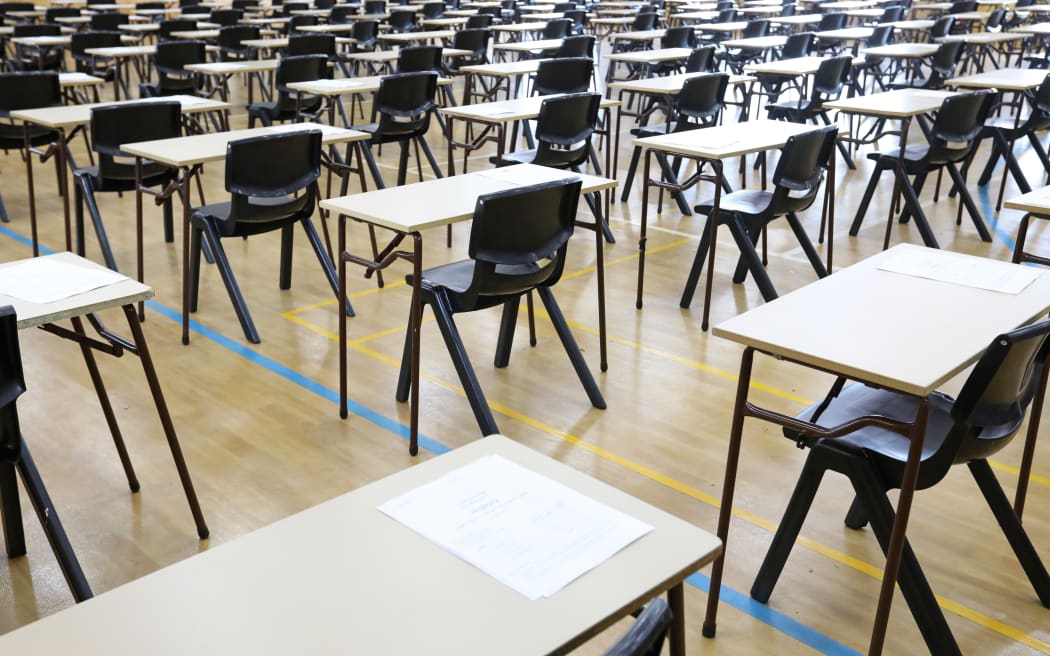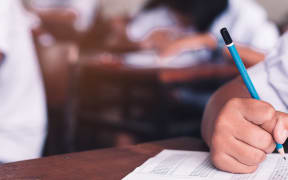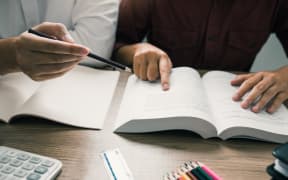
Many schools are offering students the option of taking NCEA exams in a classroom rather than the typical large exam hall. File photo. Photo: 123RF
For the first time in three years, year 11 to 13 students will undergo NCEA exams in relatively normal circumstances from today.
High school students will begin sitting their end-of-year NCEA exams today without Covid-19 restrictions.
More than 140,000 students will sit exams over the next month.
Schools are again allowed to award extra credits called learning recognition credits due to the challenges students have faced during the pandemic.
Secondary Principals' Association president Vaughan Couillault told Morning Report students' preparations for exams had been far superior compared to the past few years.
"It feels a little bit more like business as usual ... a lot more like pre-Covid in terms of set up and how things look and feel," Couillault said.
The addition of learning recognition credits also provided a bit of a relief for students, he said.
Couillault said for every five credits earned throughout the year students would automatically be awarded one recognition credit if they needed them.
"It's a wait-and-see until the results come out, some students won't need them they will get the credits they need without the learning recognition credits, others might so it really just acknowledges the significant disruption at the start of the year."
For Year 13 students this exam period represented the first and only year taking NCEA exams without Covid-19 restrictions.
However, this year was different in that students experienced a largely stable term three to prepare for the "high-stake assessments", Couillault said.
"Fortunately this year we've had a decent term three, in fact we've had an entire term three which we haven't had for the last couple years so we've had the opportunity to prepare students for sitting an exam.
"For some Year 13s it will be a bit of an unfamiliar environment, that's why we make classrooms available and not all exams are in halls and all that sort of thing to try and make things as comfortable and accessible as possible when they are already in a reasonably anxious state," he said.
Couillault said teachers and the education system were nervous about the impact Covid-19 disruptions may have on students' numeracy and literacy capabilities.
However, it wasn't clear whether this impact would manifest in this year's NCEA results or further down the track, he said.
Onehunga High principal Deidre Shea told First Up students had avenues to help them pass, if they did not do well enough in their exams.
Shea said while students should aim to do their best in exams, catch-up programmes would be available in 2023.
"The other thing of course with NCEA compared to the old system is that it isn't all or nothing, so in January when results come back if you didn't quite make it there are opportunities to work with your school to get you over the line."
The effect the pandemic had on students varied enormously, she said.
Many students were now accustomed to digital exams and the normal exam process, while others found it to be quite daunting, she said.
Shea said it was important for parents and whānau "to do as much as they can to normalise, to support and to keep their students focused on what it actually a relatively short time".
Shea said learning recognition credits - earning one per five credits achieved - were also on offer for students this year because of Covid disruption.




